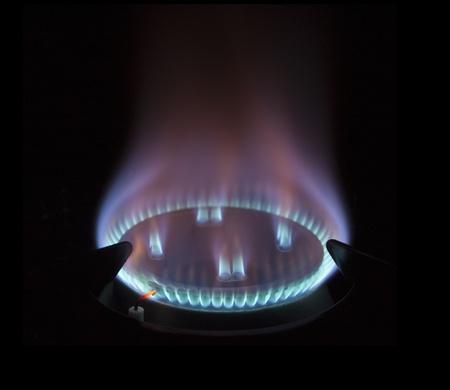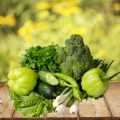Essential Kit for Campfire Cooking
If you’re planning to whip up hearty vegan or vegetarian meals over a campfire in the UK, having the right kit can make all the difference between a memorable feast and a soggy disaster. Here’s a practical rundown of must-have gear tailored for plant-based campfire cooking, with a focus on sustainability and those little British weather quirks.
Sturdy Cookware That Lasts
First off, invest in solid cast iron pots and pans—nothing beats a classic Dutch oven for slow-cooked stews or roasted veg. Cast iron holds heat brilliantly and survives the rough-and-tumble of British campsites. Lightweight alternatives like stainless steel mess tins are handy for hikers but might not hold up to repeated direct flames. If you’re keen on eco-friendly options, seek out second-hand cookware at charity shops or car boot sales—it’s both wallet- and planet-friendly.
Grills, Tripods, and Toasting Racks
A foldable grill grate is essential for charred corn, aubergines, or plant-based sausages. For true campfire flexibility, a tripod setup lets you hang pots over the flames—a brilliant way to simmer vegan curries without burning them. Toasting racks are a British breakfast staple; perfect for crumpets or sourdough toast slathered with vegan spread.
Sustainable Utensils and Prep Gear
Bamboo or recycled-plastic utensils keep your kit light and sustainable. Don’t forget a sharp knife (with a safety sheath), chopping board, tongs, and a heatproof spatula. A reusable silicone food pouch is ideal for marinating tofu or veggies ahead of time, cutting down on single-use plastics.
Clever Extras for UK Conditions
A fireproof glove will save your hands when shifting hot pans—especially crucial in damp British weather when everything gets slippery. Bring along an enamel mug for hot drinks and soups; they stand up well to open flames. Finally, stash your kit in waterproof bags so nothing gets soggy if the heavens open (which, let’s be honest, they often do).
Top Tip: Keep It Green
Opt for biodegradable soap and cloths for washing up—most UK campsites appreciate campers who tread lightly. Choosing kit that lasts means fewer replacements and less waste, so your vegan feasts stay as green as possible from prep to plate.
Choosing and Prepping Plant-Based Ingredients
When it comes to cooking vegan and vegetarian meals over a campfire, one of the best ways to guarantee freshness and flavour is by selecting local, seasonal British produce. Not only does this support local growers, but it also means your meals will be more vibrant and in tune with the natural rhythm of the UK’s countryside. Let’s break down how to select, prep, and store your plant-based ingredients for hassle-free campfire cooking.
Selecting Local and Seasonal Produce
The key to mouth-watering vegan and vegetarian campfire dishes is using ingredients at their peak. Here’s a handy guide to some popular British veg and fruits by season:
| Season | Vegetables | Fruits |
|---|---|---|
| Spring | Asparagus, spinach, spring onions, new potatoes | Rhubarb, early strawberries |
| Summer | Courgettes, broad beans, peas, tomatoes | Strawberries, raspberries, gooseberries |
| Autumn | Pumpkin, beetroot, carrots, leeks | Apples, pears, blackberries |
| Winter | Kale, parsnips, swede, Brussels sprouts | Stored apples, forced rhubarb |
Prepping Ingredients for the Campfire
A bit of prep before you set off can make all the difference once you’re gathered round the fire. Wash and chop veg at home wherever possible; store them in reusable containers or eco-friendly bags for easy access. For root veggies like carrots or potatoes, parboil them ahead of time – they’ll cook faster on the fire and soak up that smoky flavour beautifully.
Top Prep Tips:
- Marinate Ahead: Toss mushrooms, courgette slices or tofu in olive oil, herbs and garlic the night before – they’ll absorb more flavour and grill perfectly.
- Skewer It: Thread chopped veg onto metal or soaked wooden skewers for easy turning on the grill.
- Pouch Packs: Wrap sliced vegetables and a drizzle of oil in foil packets for steaming right in the coals – less washing up afterwards!
- Keep Fresh: Store leafy greens in cool bags with ice packs to keep them crisp until mealtime.
Clever Storage Solutions for Campsites:
- Bamboo containers or beeswax wraps for zero-waste storage.
- Mason jars for pre-made dressings or dips (like classic hummus or minted pea smash).
- Collapsible silicone tubs save space in your rucksack.
By picking prime British produce and prepping it smartly before you hit the outdoors, you’ll set yourself up for stress-free cooking with maximum taste. Next up: get ready to master essential campfire techniques tailored for plant-based meals.
![]()
3. Campfire Cooking Techniques for Meat-Free Meals
Step-by-Step Guidance for Perfect Vegan and Vegetarian Campfire Feasts
Cooking vegan and vegetarian meals over a campfire in the UK comes with its own set of challenges—think unpredictable weather, damp wood, and limited space at popular campsites. Here’s how to master several essential techniques that work brilliantly whatever the elements throw your way.
Grilling Over an Open Flame
Start by building a stable fire, allowing the wood or charcoal to burn down until you have glowing embers. Place a grill rack over your fire pit (most UK campsites allow these, but always check first). Brush veggies like courgettes, mushrooms, aubergines, and bell peppers with olive oil, then season with sea salt, cracked pepper, and fresh herbs. Lay them directly on the grill and turn occasionally for even charring. For plant-based protein, grill marinated tofu or vegan sausages—just be gentle as they can stick or fall apart more easily than meat.
Foil Wrap Magic
If the British drizzle starts up or you want minimal washing up, foil wraps are your best friend. Tear off large squares of heavy-duty foil and pile on sliced potatoes, carrots, onions, garlic cloves, and a handful of chickpeas or beans. Drizzle with oil and sprinkle on your favourite dried herbs (thyme and rosemary work wonders). Seal tightly and nestle into the embers; rotate every 10 minutes or so for even cooking. After about 30–40 minutes, carefully unwrap for a steaming parcel of goodness.
Pot and Pan Cooking: One-Pot Wonders
A sturdy cast iron pot or skillet is invaluable on UK campgrounds. Place it over the embers (not direct flame) to simmer veggie stews or curries—ideal for warming up after a chilly day outdoors. Lentils, tomatoes, spinach, and root veg cook beautifully this way. Bring along some crusty bread or boil-up quick-cook rice for a complete meal.
Quick Tips for British Campsite Success
- Always check if open fires are permitted; many sites require raised fire pits or designated areas.
- Bring extra dry kindling—damp conditions can make lighting a fire tricky.
- Pre-chop veggies at home if rain is forecasted; less faff under a tarp.
- Invest in long-handled tongs and heatproof gloves for safety.
With these step-by-step techniques adapted for British weather and campsite rules, you’ll be able to whip up hearty vegan and vegetarian meals that will keep everyone fuelled and happy around the campfire.
4. Simple and Satisfying Vegan & Veggie Recipes
When it comes to campfire cooking, there’s something magical about enjoying classic British comfort food with a plant-based spin. These tried-and-tested recipes are not only easy to prepare outdoors but also guaranteed crowd-pleasers—even for the most committed carnivores. Below, you’ll find a handy table of meal ideas, each one designed for fuss-free campfire cooking with minimal kit and maximum flavour.
British Favourites with a Plant-Based Twist
| Recipe | Main Ingredients | Campfire Cooking Method |
|---|---|---|
| Vegan Full English Breakfast | Baked beans, mushrooms, tomatoes, vegan sausages, hash browns, toast | Grill on grate or cook in cast iron skillet over embers |
| Lentil Shepherd’s Pie Parcels | Lentils, carrots, peas, onions, mashed potato (vegan butter) | Wrap in foil and bake in hot coals |
| Charred Vegetable Skewers | Courgette, peppers, red onion, cherry tomatoes, olive oil, herbs | Thread onto skewers and grill directly over fire |
| Mushroom & Ale Stew | Mushrooms, carrots, potatoes, vegan ale, vegetable stock | Simmer in Dutch oven or heavy pot over flames |
Top Tips for Flavourful Campfire Meals
- Pre-chop and marinate veg at home to save time at the campsite.
- Packed tinned ingredients like beans and lentils are perfect for quick protein boosts.
- Bring a small jar of mixed dried herbs or a dash of Marmite for that unmistakable British umami kick.
Tried-and-Tested Recipe: Campfire Toad in the Hole (Vegan Edition)
- Make a simple batter using chickpea flour (gram flour), plant milk and a pinch of salt.
- Pour into a greased cast iron skillet already heated on the fire.
- Add vegan sausages on top and cover loosely with foil.
- Bake over indirect heat until golden and puffed up—serve with instant gravy!
Why These Work Brilliantly Outdoors
These recipes rely on staple ingredients found in any British supermarket and adapt well to open-flame cooking. Whether you’re after a hearty breakfast or a classic stew under the stars, these meals keep you warm and satisfied while making the most of local flavours—all without compromising on your vegan or veggie lifestyle.
5. Top Tips for Cooking Outdoors in the UK
Dealing with Unpredictable British Weather
The great British weather is famously unpredictable, so always come prepared. Pack a sturdy tarp or windbreak to shield your campfire from sudden rain and gusty winds. Waterproof matches or a reliable firelighter are essential, and always bring an extra layer or two for warmth. Opt for quick-cooking vegan and vegetarian recipes that won’t leave you drenched if the heavens open. A good thermos of hot tea never goes amiss either!
Campfire Safety Essentials
Safety first—especially when cooking over an open flame. Set up your campfire away from tents and low-hanging branches, and use a designated fire pit where possible. Keep a bucket of water or sand nearby in case you need to douse the flames quickly. Never leave your fire unattended, and make sure it’s fully extinguished before you move on. Remember, embers can stay hot for hours even after the flames have died down.
Eco-Friendly Campfire Cooking
Respect the beautiful countryside by following Leave No Trace principles. Use locally sourced firewood rather than collecting from the wild, as this protects local habitats. Bring reusable utensils and plates, compost any food scraps, and pack out all your rubbish—vegan sausage wrappers included! Consider using a portable fire bowl to minimise impact on grassy areas, and stick to biodegradable soaps when cleaning up.
Practical Packing List
- Lightweight pots and pans suitable for open fires
- Reusable metal skewers for grilling veggies
- Biodegradable wipes for easy clean-up
- Plenty of foil for roasting root veg or making parcels
Final Thoughts
Cooking vegan and vegetarian meals over a campfire in the UK can be both rewarding and sustainable with just a little preparation. Embrace the elements, cook safely, and leave nature as lovely as you found it.
6. Cleaning Up and Looking After the Countryside
Once you’ve enjoyed your delicious vegan or vegetarian campfire meal, it’s crucial to leave the countryside as beautiful as you found it. The UK’s wild spaces are precious, and respecting them means future generations can enjoy the same freedoms and natural beauty. Here are some practical tips for cleaning up and minimising your impact after outdoor cooking.
Clear Away All Rubbish
Always bring a rubbish bag with you and take home everything you brought, including food scraps, packaging, and biodegradable waste. Even plant-based leftovers can disrupt local ecosystems or attract wildlife to human food sources, which is best avoided.
Dispose of Ashes Responsibly
If youve used a campfire or portable fire pit, make sure any ashes are completely cooled before disposing of them. Scatter cold ashes thinly over a wide area away from water sources, or better yet, pack them out if possible. Never bury hot embers—they can smoulder and cause underground fires.
Leave No Trace Principles
Follow the ‘Leave No Trace’ ethos: stick to established fire pits where available, avoid damaging plants or disturbing wildlife, and keep noise levels low. Stick to footpaths when moving around, and avoid trampling fragile ground cover.
Respect Local Regulations
Check local guidelines before lighting fires—many areas in the UK have restrictions to protect habitats and prevent wildfires. If fires aren’t allowed, consider using a gas camping stove instead for your vegan or veggie meals.
Be Considerate of Others
Keep your cooking area tidy and free from lingering food smells that could affect other campers or walkers. If you’re in a shared space like a campsite or national park, clear up promptly so others can enjoy the spot too.
By following these simple but effective steps, you’ll help preserve Britain’s wild places while enjoying your campfire-cooked plant-based feasts—and set a positive example for fellow outdoor enthusiasts.


